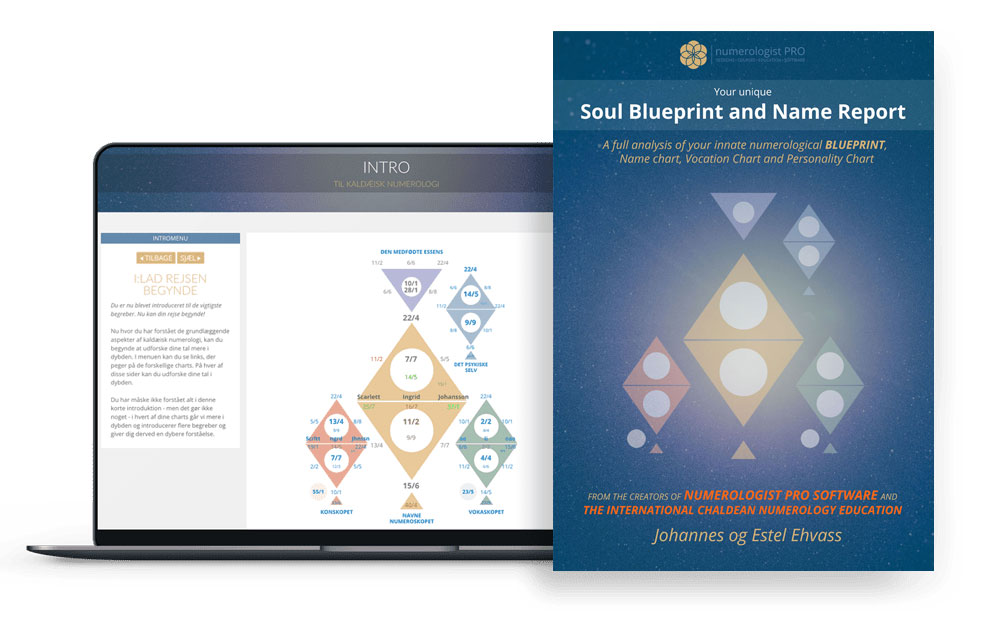Hellenistic to Islamic Transition: The Torchbearers of Astrological Wisdom

Estel Ehvass
Welcome, dear reader! Venturing into the world of Hellenistic astrology feels akin to stepping into a grand amphitheater where the stars narrate tales of ancient wisdom. Originating from the Hellenistic period of ancient Greece, this form of astrology is the foundation for many of the astrological systems we recognize today. What has always captivated me is its intricate blend of mathematics, philosophy, and spiritual insight. The Greeks, with their keen observations and profound understanding, created an astrological system that not only looked at the cosmos but also sought to explain the very essence of our souls. Join me as we delve into this fascinating realm, where celestial alignments speak of human experiences, and where the cosmos and character intertwine in the dance of destiny.
Hellenistic to Islamic Transition: The Torchbearers of Astrological Wisdom

The transition from the Hellenistic to the Islamic era marks one of history’s most remarkable intellectual torch-passings.
As the dusk settled on the Greek-speaking world, a new dawn arose with the Arabic-speaking one, and at the forefront was the realm of astrology.
The Islamic civilization not only preserved but also refined and expanded upon the astrological knowledge it inherited. Here, we delve into the vital translation movement and explore how this incredible transition unfolded.
The Historical Backdrop
By the 7th century CE, the vast territories of the Byzantine and Sassanian Empires were rapidly coming under Islamic rule. These lands were replete with centuries of accumulated knowledge, residing in scriptures, scrolls, and the minds of the learned.
The newly established Islamic Caliphate, with its capital in Baghdad, had a unique vantage point, straddling the confluence of Greek, Persian, and Indian civilizations. This geographical advantage soon translated into an intellectual one.
The Translation Movement
The Abbasid Caliphs, particularly Al-Ma’mun, inaugurated the Bayt al-Hikma or House of Wisdom in Baghdad. This wasn’t merely an academic institution but an ambitious translation project.
Scope: Greek works on medicine, mathematics, astronomy, philosophy, and, crucially, astrology, were sought after. They were translated primarily from Greek (and sometimes Syriac) into Arabic.
Key Figures: At the helm were Christian scholars who knew both Greek and Arabic. Noteworthy among them was Hunayn ibn Ishaq, an Assyrian physician and scientist, who translated many works, including those of Galen and Hippocrates.
Patronage: The Abbasid Caliphs were generous patrons. They would often reward translators with gold, equivalent in weight to the translated book.
Astrological Texts in Transition
Astrology enjoyed a prominent position among the sciences in the Islamic world.
Ptolemy’s Tetrabiblos: One of the first major astrological texts to be translated was Ptolemy’s Tetrabiblos. It laid the foundation for astrology’s study in the Islamic world and was referenced by numerous scholars.
Valens, Dorotheus, and More: Works of Vettius Valens, Dorotheus of Sidon, and others found their way into Arabic. These texts were often accompanied by exhaustive commentaries and explanations.
Evolution and Synthesis
While preservation was key, the Islamic scholars were not mere custodians; they were innovators.
Al-Biruni: A polymath, his work “Kitab al-Tafhim” stands as a comprehensive guide on the themes of astronomy and astrology. He also studied Indian methods of astrology, thereby incorporating a broader perspective.
Al-Sufi: Known for his work on fixed stars, Al-Sufi’s “Book of Fixed Stars” was a reworking of Ptolemy’s “Almagest” but added considerable indigenous knowledge.
The Introduction of the House System: The Islamic astrologers introduced the concept of dividing the sky into 12 parts, known as the “Houses,” each associated with aspects of human life. This method was heavily influenced by earlier Hellenistic practices but saw its most detailed systematization in this era.
New Techniques and Concepts: Arabic Parts or Lots, critical components in horoscopic astrology, owe much to this period. They are mathematically derived points based on planetary positions, each signifying various life aspects.
Later Influences and Reconveyance
The crucible of translation and innovation in Baghdad had profound implications for the world:
Europe’s Renaissance: Much of the classical knowledge that fueled Europe’s renaissance came from Arabic translations. Scholars like Ibn Rushd (Averroes) and Ibn Sina (Avicenna) were instrumental in conveying this knowledge, influencing European figures such as Thomas Aquinas.
Astrological Renaissance: Arabic translations and commentaries on Hellenistic astrological texts found their way into Medieval Europe, rekindling interest in astrology. The Arabic nomenclature also persisted, with many star names (e.g., Aldebaran, Altair) bearing their Arabic origins.
Conclusion
The journey of astrological wisdom from the Hellenistic to the Islamic world is emblematic of humanity’s unquenchable thirst for knowledge. It underscores the interconnectedness of civilizations and stands as a testament to the Islamic world’s pivotal role in nurturing, evolving, and transmitting this knowledge. Far from being passive receptacles, the scholars of the Islamic Golden Age were astute interpreters, synthesizing diverse streams of thought into a coherent, enriched whole, which then flowed into myriad intellectual tributaries across continents and epochs.

Johannes & Estel: Renowned authorities in Numerology, Astrology, and the esoteric arts. As the founders of Scandinavia's premier Numerology school, we're delighted to share our insights through this curated series on astrology. Dive in and discover the stars.
The Worlds Most Advanced Numerology Report

Your birthdate reveals your unique life purpose, potentials, talents, weaknesses, and karma in this life.
Your names show what you attract into your life regarding your career, relationships, happiness, money, and success.
GET THE REPORT HERE
Introduction to Astrology
The history of Astrology
Moving beyond deterministic astrology
Foundation of Astrology: Planets, Signs and Houses
Astrology and the Holographic Universe
The Holographic Universe
The Human Psyche as a Mirror to The Solar System
The Human Body as a Mirror to The Star Signs
Astrology Background
Egyptian Astrology
Mayan Astrology
Chinese Astrology
Indian Astrology - Jyotish
Celtic Astrology
Tibetan Astrology
Mesopotamian Astrology
Early Mesopotamian Astrology: The Dawn of Celestial Divination
Enuma Anu Enlil: The Epicenter of Babylonian Celestial Omen Interpretation
Babylonian and Chaldean Astrology
Babylonian and Chaldean Astrology
Chaldean influence and evolution
Chaldean Wisdom: Safeguarding and Transmitting Astrological Knowledge
Hellenistic Astrology
Hellenistic Astrology background
Claudius Ptolemy and Tetrabiblos
Vettius Valens
Dorotheus of Sidon
Persian Astrology
Persian Astrology background
Sassanian Astrology
Late Antiquity and The Transition Period
Late Antiquity and The Transition Period
Hellenistic to Islamic Transition: The Torchbearers of Astrological Wisdom
Islamic Golden Age
Arabian Astrology Background
Arabian Astrology Contributions
Medieval Astrology
Introduction: The Medieval Cosmos
Monastic Preservers: Astrological Knowledge in the Dark Ages
Astrology in Medieval Medicine
Kings, Queens, and Constellations: Astrology in the Medieval Court
The Church and the Stars: A Contentious Relationship
Universities and Scholastic Pursuits: Academic Astrology
Astronomy & Astrology: Tools of the Trade
Medieval Astrological Houses and the Synthesis of Traditions
Transition to the Renaissance: Humanism and the Celestial Arts
Reflections: Medieval Astrology's Echoes in Modern Practice
Astrological Art of the Middle Ages
Famous Medieval Astrologers
Medieval Astrological Texts
Renaissance Astrology
Renaissance Humanism and Astrology
Scientific Advancements and Astrology
The Social Fabric: Astrology in Everyday Renaissance Life
Court Astrologers of the Renaissance
Controversies and Conflicts: Astrology Under Scrutiny
Renaissance Texts and Authors: Continuation of a Tradition
Astrology and Art: Celestial Imagery in the Renaissance
Renaissance Astrological Practices: Evolutions and Innovations
End of the Renaissance: The Gradual Decline of Astrological Influence
Renaissance Astrology's Echo in the Modern World
Enlightenment Astrology
Introduction: The Enlightenment and Astrology
Challenging the Stars: Astrology's Critics during the Enlightenment
Astrology and the New World
Astrology in the 19th Century
The Dawn of Psychological Astrology
Astrology in the 20th Century: A Modern Renaissance
Astrological Associations and Schools
Modern Controversies and Astrology
Astrology and Popular Culture
Astrology and Technology
Current Trends and Future Directions in Astrology
Conclusion: Reflecting on Astrology's Evolution
The Planet Significances
The Sun in Astrology
The Moon in Astrology
Mercury in Astrology
Venus in Astrology
Mars in Astrology
Jupiter in Astrology
Saturn in Astrology
Uranus in Astrology
Neptune in Astrology
Pluto in Astrology
Chiron in Astrology
Black Moon Lilith in Astrology
Pars Fortuna in Astrology
Ceres in Astrology
Houses in Astrology
Introduction to Astrological Houses
The Angular Houses
The Succedent Houses
The Cadent Houses
The 1st House
The 2nd House
The 3rd House
The 4th House
The 5th House
The 6th House
The 7th House
The 8th House
The 9th House
The 10th House
The 11th House
The 12th House
Interaction Between Houses
Derived Houses, House Rulers, and Interceptions
Conclusion: Synthesizing House Knowledge
All Materials © 2023 & 2024 Numerologist PRO
Terms of Service: Information provided by Numerologist PRO and/or from this web site is not intended as advice (medical, psychological, financial or other), nor is it intended to replace your work with a qualified professional (medical or otherwise). You should maintain your relationship with your providers and consider the services of this site as informational only. Any information, stories, examples, or testimonials presented on this website do not constitute a warranty, guarantee, or prediction regarding the outcome of an individual. This web site is a sharing of knowledge and information of numerology/energy work based on the experiences of Numerologist PRO. You are encouraged to make your own decisions based on your own research and inner guidance. By booking and receiving services, you agree to fully release and hold harmless Numerologist PRO and all it's affiliated numerologists from and against any liability or claim that may arise out of or in connection with their service(s).
Numerologist PRO © 2021

CONTACT
numerologist@numerologistpro.com
LIKE US, and get free numerology tools, info about your personal numbers, best business dates of the year - and more!
YOUR FREE NUMEROSCOPE CHART
Enter your name and email below and get access to our free online numerology chart tool.